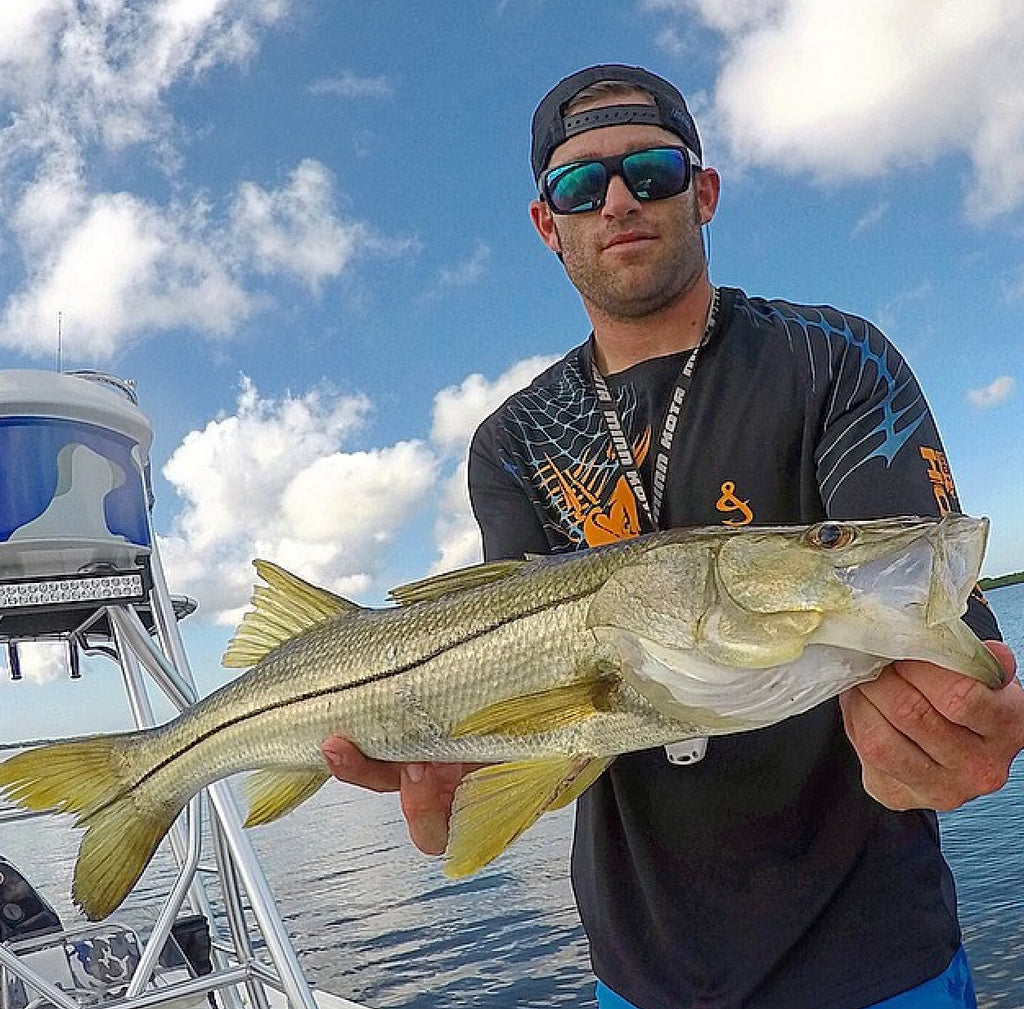Fishing Blog
Happy Holidays from Hook & Tackle!
Santa encourages all to stay protected from the sun's harmful rays.

Hook & Tackle introduces the Solar System collection consisting of breakthrough sun protective clothing that provides effective sun protection, permanently! It never loses its ability to block the sun, helping to prevent advanced aging and skin cancer. The Hook & Tackle Tech Tees are ultra-soft, quick-dry and odor-resistant, finally making sun protection cool, relaxed and comfortable.
Hook & Tackle designers know that any garment which doesn't provide more sun protection, , enhanced comfort, or innovation simply doesn't belong in the Hook & Tackle collection. They know because when they're not making Hook & Tackle's Solar System products, they're wearing them.
Check out the full sun protection collection today at http://hookandtackle.com/collections/sun-protection



A tuna is a saltwater fin fish that belongs to the tribe Thunnini, a sub-grouping of the mackerel family – which together with the tunas, also includes the bonitos, mackerels, and Spanish mackerels.
Tuna and mackerel sharks are the only species of fish that can maintain a body temperature higher than that of the surrounding water. An active and agile predator, the tuna has a sleek, streamlined body, and is among the fastest-swimming pelagic fish – the yellowfin tuna, for example, is capable of speeds of up to 47 mph.

Found in warm seas, it is extensively fished commercially, and is popular as a game fish. As a result of over-fishing, stocks of some tuna species such as the southern bluefin tuna have been reduced dangerously close to the point of extinction.


NASCAR Driver Tony Stewart in Hook & Tackle Official Tournament Shirt
Are you ready for the 2015 FORD Championship Weekend at Homestead Speedway...
Hook & Tackle is a proud sponsor of the NASCAR Hot Rods & Reel Fishing Tournament, benefiting the Buoniconti Fund to help Cure Paralysis. Anglers will be in one boat with a professional guide and NASCAR driver. The event also includes a garage tour and race tickets for the Homestead Speedway.
All of the NASCAR Drivers are present in the center lake of the track fishing for Bass the very morning of the Chase Sprint Cup. This is one of the biggest NASCAR races of the year just prior to the Daytona 500.
Drivers Tony Stewart and Ryan Newman (seen below) are fishing fanatics and fans of Hook & Tackle. They have both been involved since day one and are very active. Hook & Tackle is proud to celebrate over 12 years as the official apparel sponsor.

The Buomiconti Fund is committed to finding a cure for paralysis resulting from spinal cord injury and to seeing millions worldwide walk again, the Buoniconti family established The Buoniconti Fund to Cure Paralysis in 1992, a non-profit organization devoted to assisting The Miami Project achieve its national and international goals.




Hook & Tackle introduces a group of exclusively printed vented back fishing shirts that provide UPF 50+ sun protection. It also offers cross channel radial sleeves allowing you to cast without any restriction.

The Micro-Poly material is quick dry and odor resistant. One of the most comfortable shirts allowing to keep you cool through the innovative vented back.

Hook & Tackle is one of the first innovators of Sun protection apparel in this industry. Now taken to the next level, be comfortable and stay protected from the sun's damaging rays. And catch a snook or two!


One of the largest snooks grows to a maximum overall length of 4.6 feet but common length 1.6 feet.The IGFA world record is 24.32 kg (53 lb 10 oz) caught in Parismina Ranch, Costa Rica. It possesses drab coloration except for a distinctive black lateral line. It can also possess bright yellow pelvic and caudal fins, especially during spawn.

"At the June 2012 Florida Fish and Wildlife Conservation Commission (FWC) meeting, Commissioners voted to keep the recreational harvest of snook in Gulf of Mexico waters closed through Aug. 31, 2013. This closure will offer the species additional protection after a 2010 cold kill detrimentally affected the population. Snook closed to harvest in Gulf of Mexico and Atlantic waters in January 2010 after a severe cold kill affected snook population number."
This means that all Snook are "Catch and Release" only in the Gulf of Mexico until August 31, 2013. At that time the FWC can choose to open or close Snook harvest for another season. The commercial harvest or sale of Snook is prohibited by the same regulations.
Update: At the June 2013 Florida Fish and Wildlife Conservation Commission (FWC) meeting, Commissioners voted to let the recreational harvest of snook in Gulf of Mexico waters reopen to harvest Sept. 1st. The next stock assessment for snook is scheduled for 2015.

Photos courtesy of Ryan Copenhaver (@ryans_1985)
































